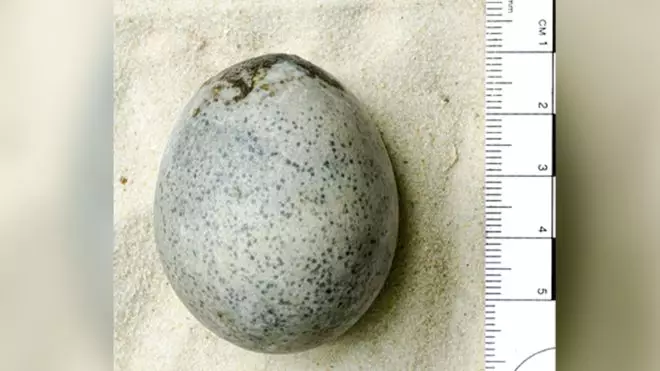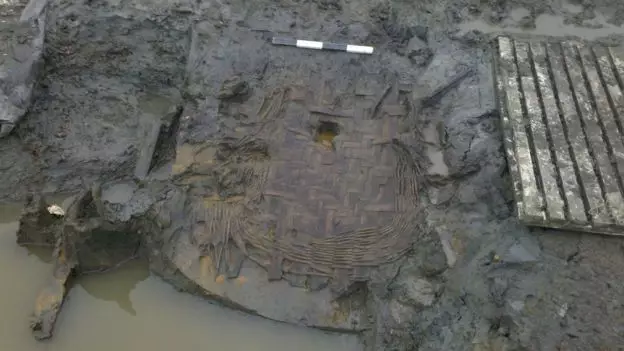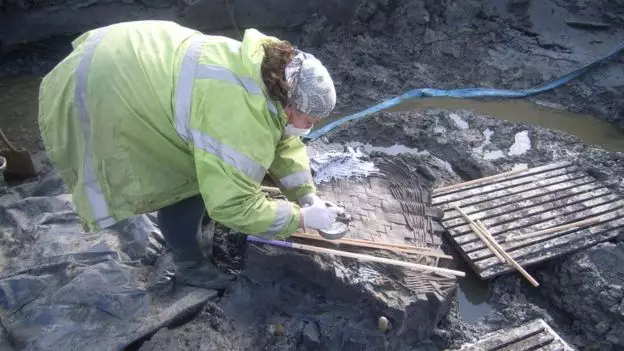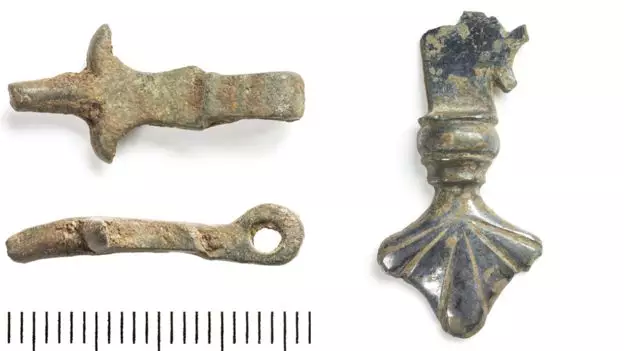
An archaeologist has accidentally let off the world's oldest stink bomb after cracking open a 1,700-year old Roman egg during a recent dig in Buckinghamshire.
Experts have been embarking on a nine-year-long excavation on the Barryfield housing estate near Aylesbury, which is located next to the ancient Roman settlement of Fleet Marsdon.
A number of 'extraordinary items' have been discovered during the dig, most notably a set of four perfectly preserved and extremely fragile bird eggs that date back to the third century, making them some of the oldest eggs in existence.

However, three of the four eggs were broken upon retrieval, which according to bystanders released a 'potent stench of rotten egg'.
Advert
The remaining egg is the only complete object of its kind discovered in the UK and was likely preserved as a result of being placed in a waterlogged pit.
Archaeologist Edward Biddulph said the extent and range of discoveries was 'more than could be foreseen'.

Mr Biddulph, senior project manager with Oxford Archaeology South, explained that people in the Third Century used to throw objects into the pit for good luck - 'much like a wishing well' - which explained the high number of preserved items found in the pit.
Advert
He said: "The pit was still waterlogged and this has preserved a remarkable collection of organic objects."
In Roman society eggs symbolised fertility and rebirth, and eggshells have been found in other UK Roman sites before - but never a complete egg.
The team behind the discovery believe that the eggs and the basket may have been placed in the waterlogged pit as food offerings in a religious ceremony.

Other items found in the dig included leather shoes, wooden tools and an extremely rare basket.
Advert
Oxford Archeology is set to publish a book on its findings in the near future, saying that the discoveries have helped paint a clearer picture of life in Roman Fleet Marston and surrounding villages.
In other archeology news, a team working in Croatia recently unearthed an ancient Roman chariot that was buried in ritual fashion along with two horses.

The fossilised remains were discovered in a large burial chamber that belonged to an 'extremely wealthy family' alongside the carriage that - presumably - the two horses would have once pulled.
Advert
The incredible find was made by the archaeologists from the City Museum Vinkovci and the Institute of Archaeology in Zagreb. They found the chariot - known in Roman times as a cisium - at the site called Jankovacka Dubrava, near to the village of Stari Jankovci in eastern Croatia.
Featured Image Credit: Oxford ArcheologyTopics: World News, UK News, Interesting